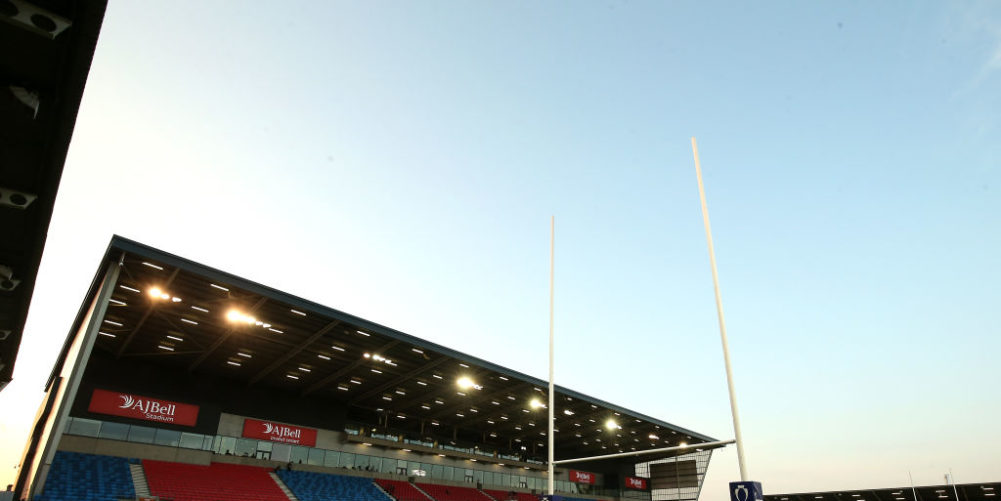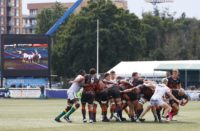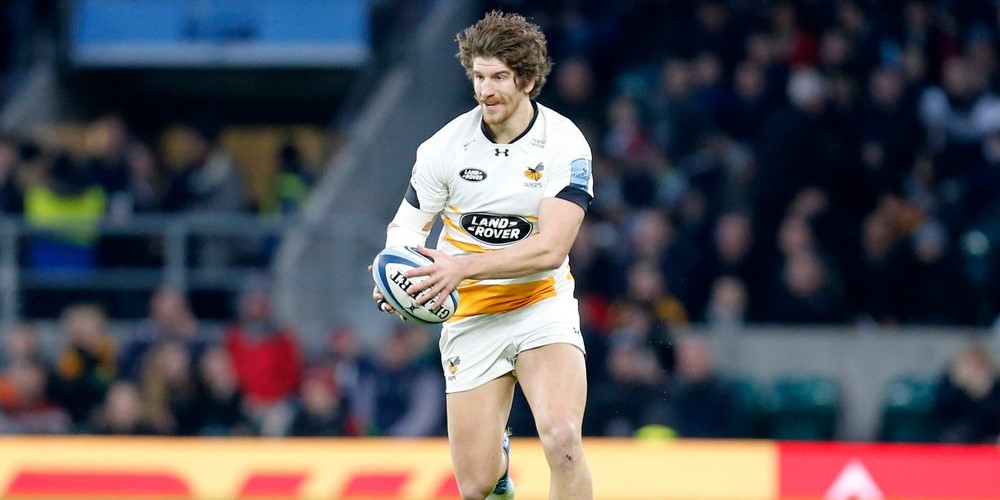The UK government has put the phased return of fans to sporting events in England on hold, heightening fears that clubs could go out of business at all levels of rugby.
October 1 had been the date where stadiums would be able to host up to 1,000 fans bringing much-needed relief to clubs that have closed their doors for the past six months, bar pilot events at Harlequins and Gloucester.
Reacting to a rapidly increasing spike in COVID-19 infections, cabinet minister Michael Gove confirmed on Tuesday morning that sport in England would stay in line with behind-closed-doors measures.
“We do want to, in due course, allow people to return to watch football and other sporting events but it is the case that we just need to be cautious at the moment and I think a mass reopening at this stage wouldn't be appropriate,” Gove said.
Sporting organisations, which includes the RFU, have placed pressure on Prime Minister Boris Johnson to support professional and grassroot sports in a letter warning that the future of the sporting sector is ‘perilous'.
A section of the letter, endorsed by over 100 organisations reads: “Covid-19 has undermined our commercial revenue streams with both stadia and leisure facilities closed or greatly reduced in capacity. The impact of this will potentially lead to a lost generation of sport and activity. In order to play our fullest role, we must survive and stabilise.”
The announcement ends Bath's preparations to host 1,000 fans tonight at the Rec for their match against Gloucester in the Premiership, while Bristol were set to do the same against Leicester next week as part of the pilot scheme.
Anger at the government has been growing from the sporting sector, as pubs and restaurants received VAT breaks to encourage the public to ‘Eat Out to Help Out'.
And with stadiums laying dormant for much of the year, the reality of the financial hardship was made apparent by Tony Rowe, chairman of Exeter Chiefs – the Premiership's only profit-making club – who revealed they are losing £1m every month.
“I don't think the rugby fraternity realise how much their clubs are losing and it's currently costing us just over £1m a month to keep operating,” Rowe told The Rugby Paper in an interview last month.
“We still have to maintain all the infrastructure, as well as the playing side, and it's been difficult. Sandy Park has had to cancel over £1m in corporate business from banquets, conferences and dinners and I can't see when that will come back so it's eating into our reserves.
“Everybody's held up Exeter as the ideal business and a profitable club because we have Sandy Park Conference and Banqueting that pays the day-to-day bills and all these bums on seats on matchdays, but for the last five months that's been a millstone around our necks.
“We can't earn any revenue and yet the outgoings remain the same.
“Your central funding is made up of TV, league sponsors and the RFU money covers some of it, but the bigger money is bums on seats and if we can't get spectators into the stadium, we're all in trouble.”
The state of play at the RFU has been equally harsh financially, with the union making 139 staff redundant last month to ease the effects of its projected loss of £107m in revenue.
Attended matches at Twicenham provide critical income for the RFU, who had been targeting having 19,000 in to watch England play Barbarians on October 25, plus 25,000 for its Autumn Nations Cup Tests and the Premiership final on October 24.
In May, RFU chief executive Bill Sweeney warned the Department of Culture, Media and Sport committee that should no rugby be played at Twickenham until the summer of 2021 they will lose 85% of their income.
The opportunity to allow fans back into stadiums under socially distanced measures, remains unclear with the UK COVID-19 alert level being upgraded from Level 3 to Level 4 meaning ‘transmission is high or rising exponentially'.


























